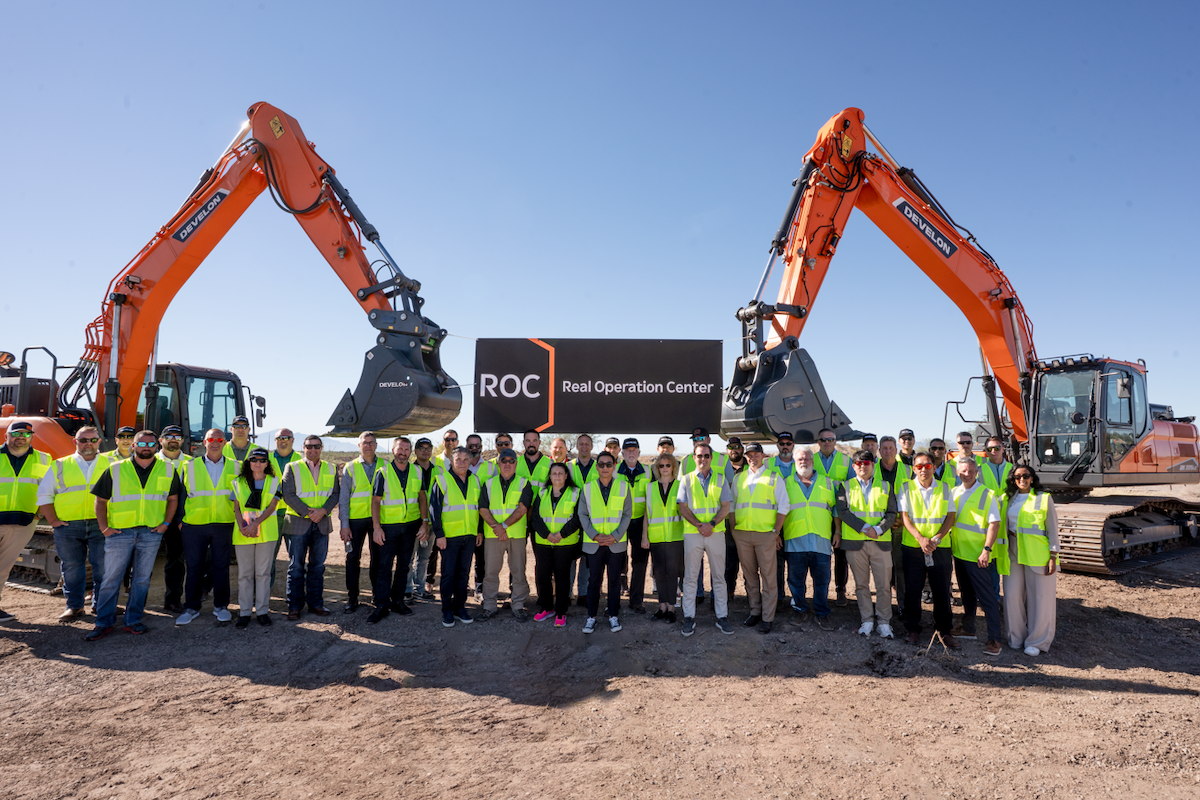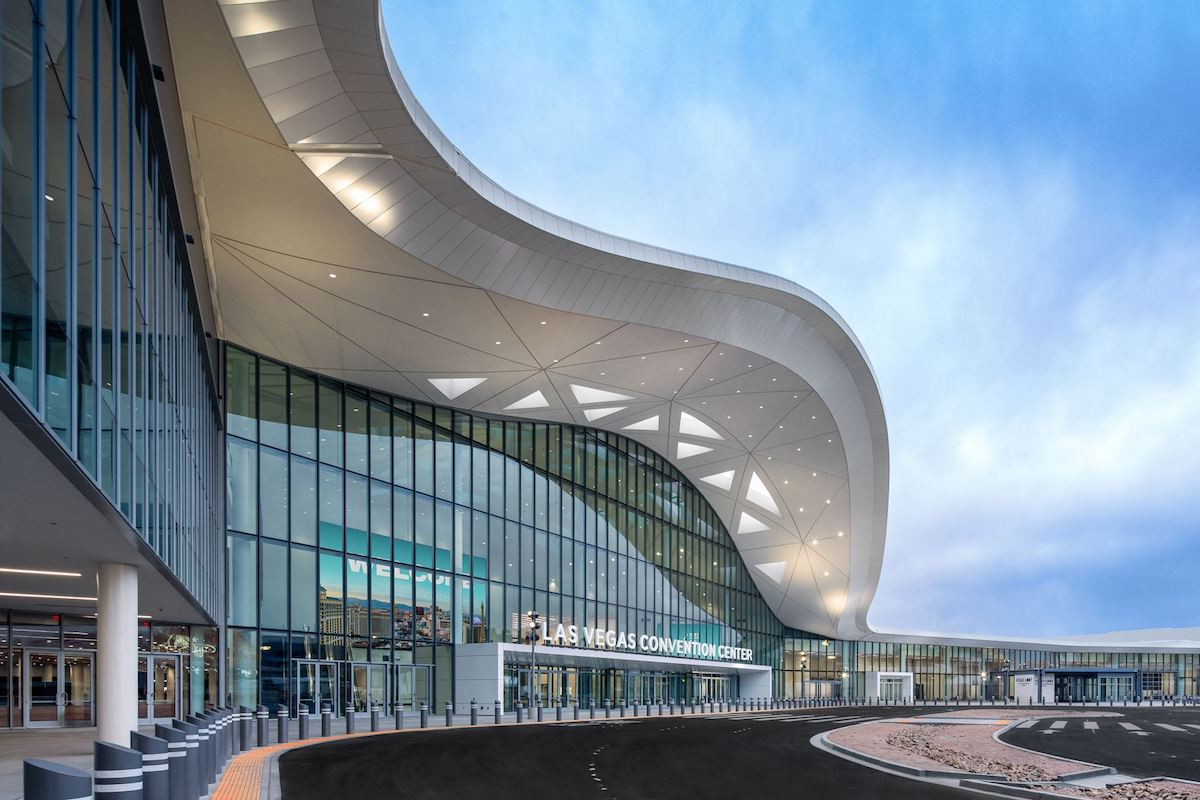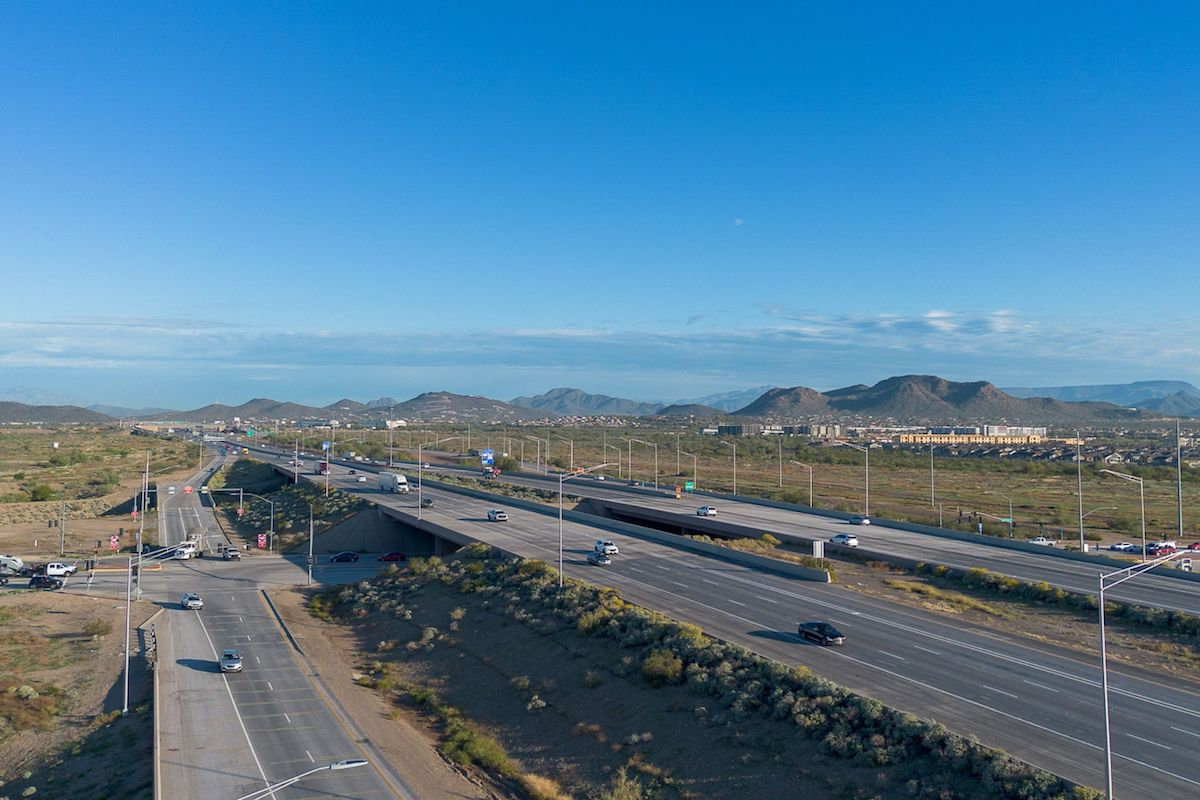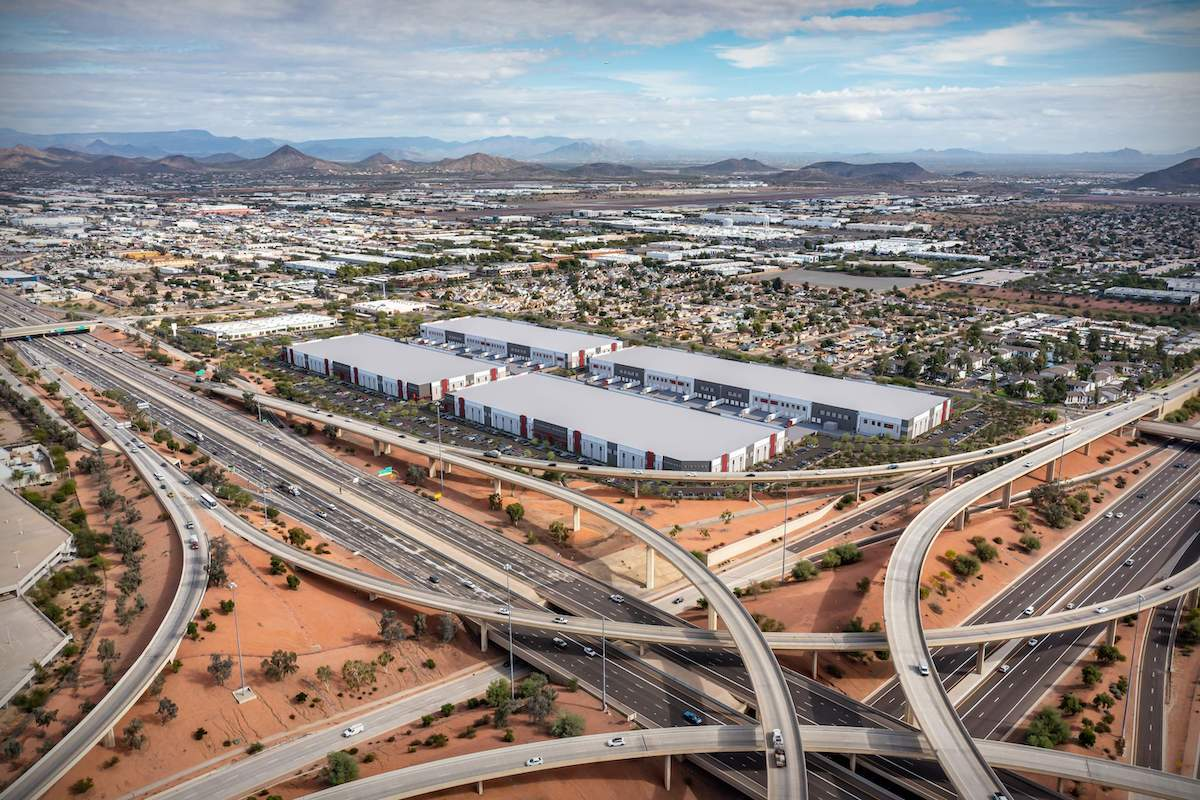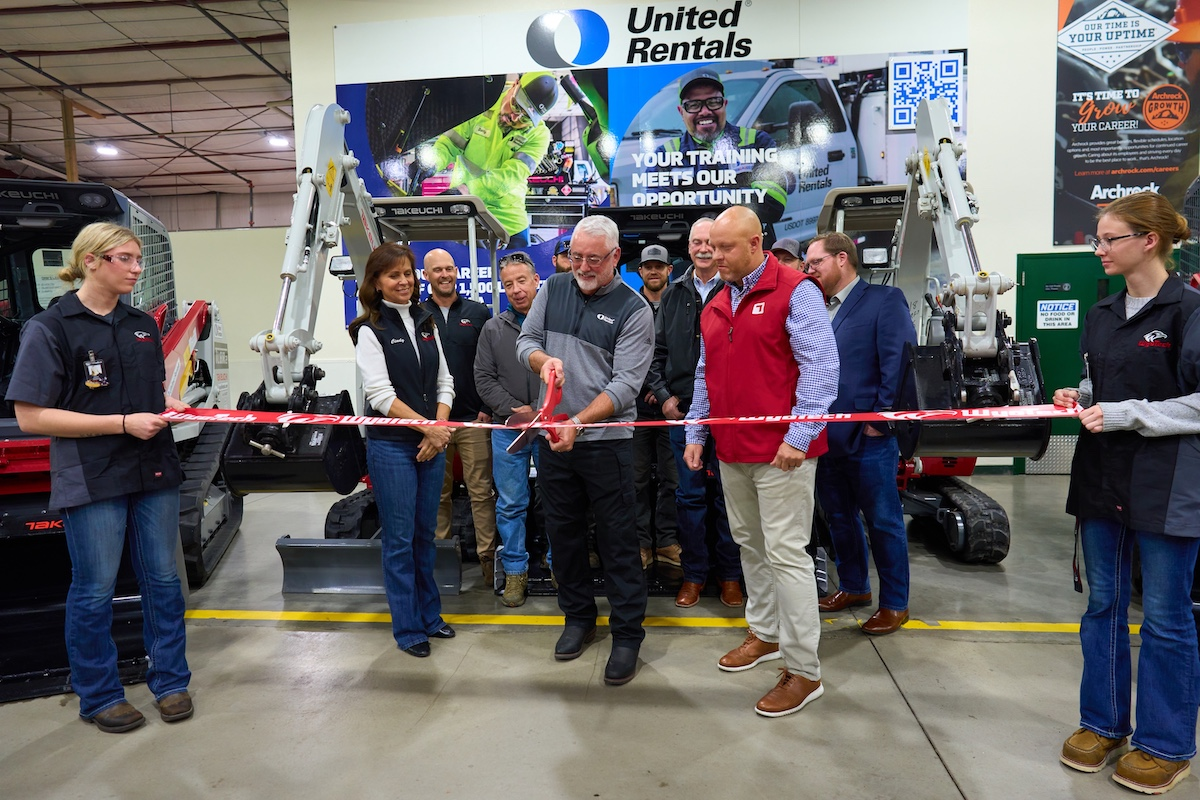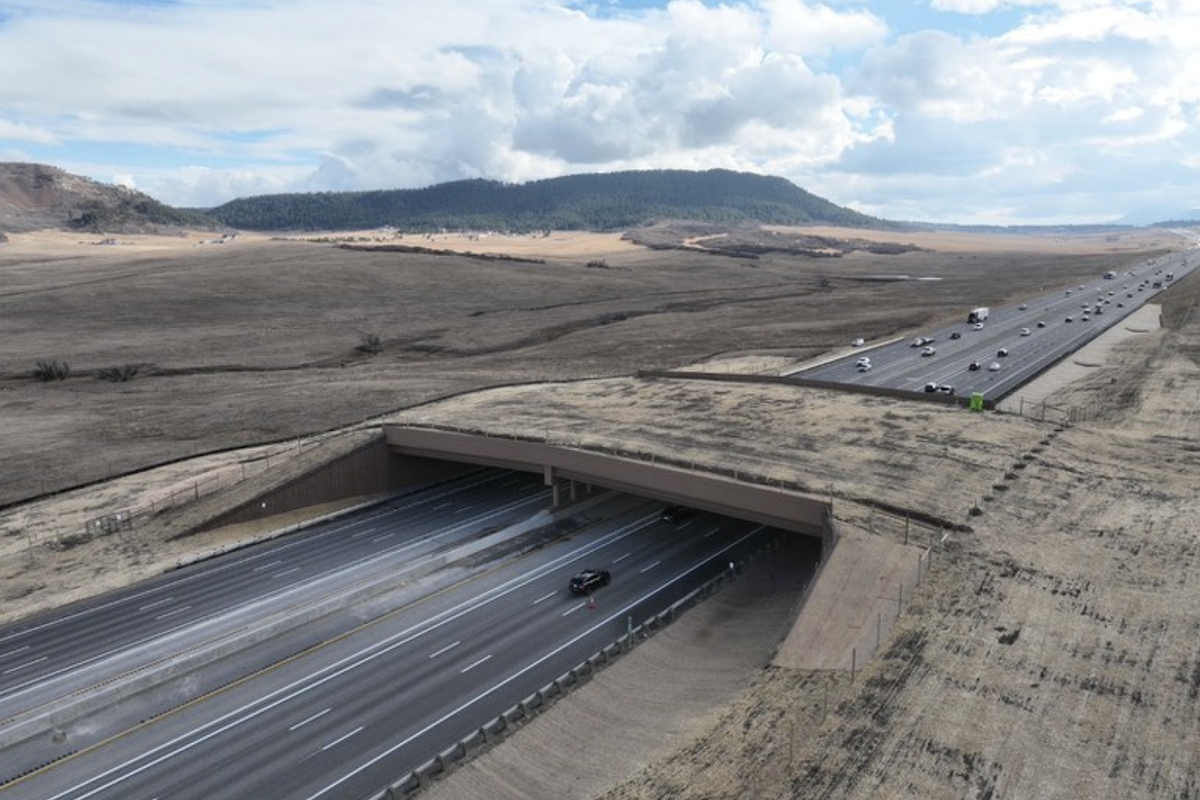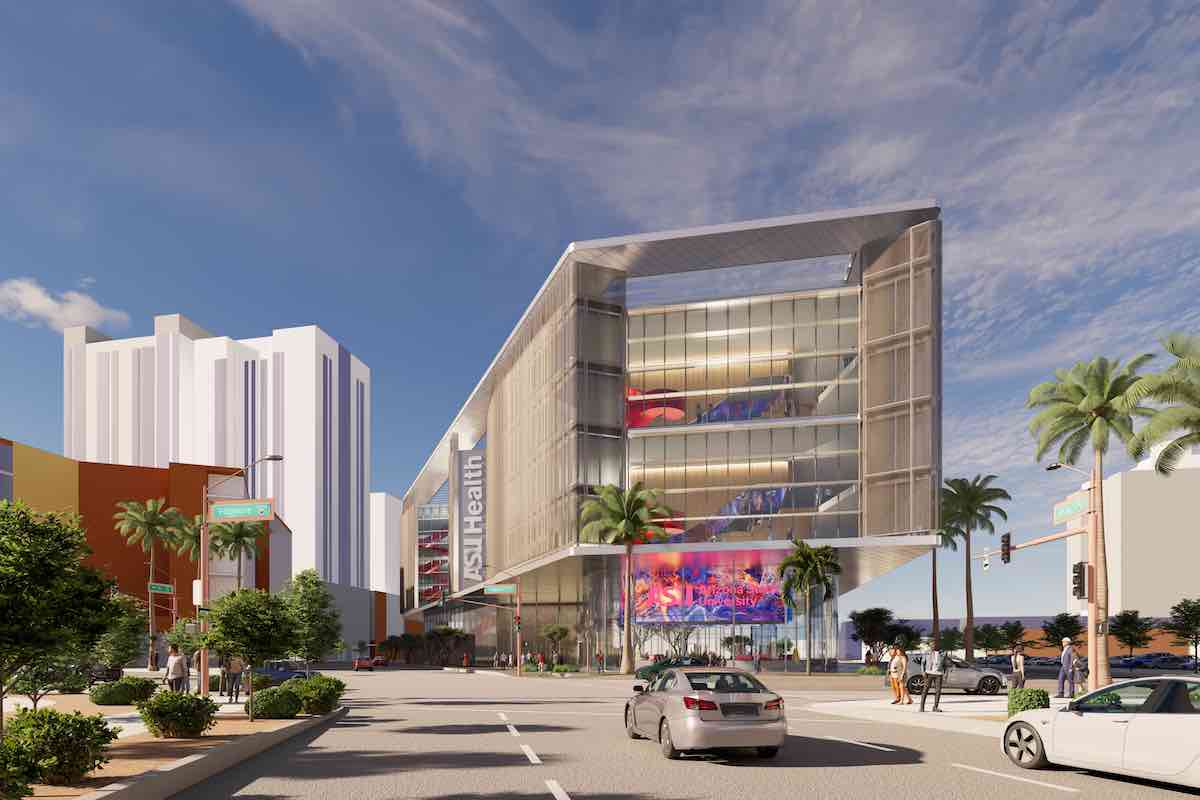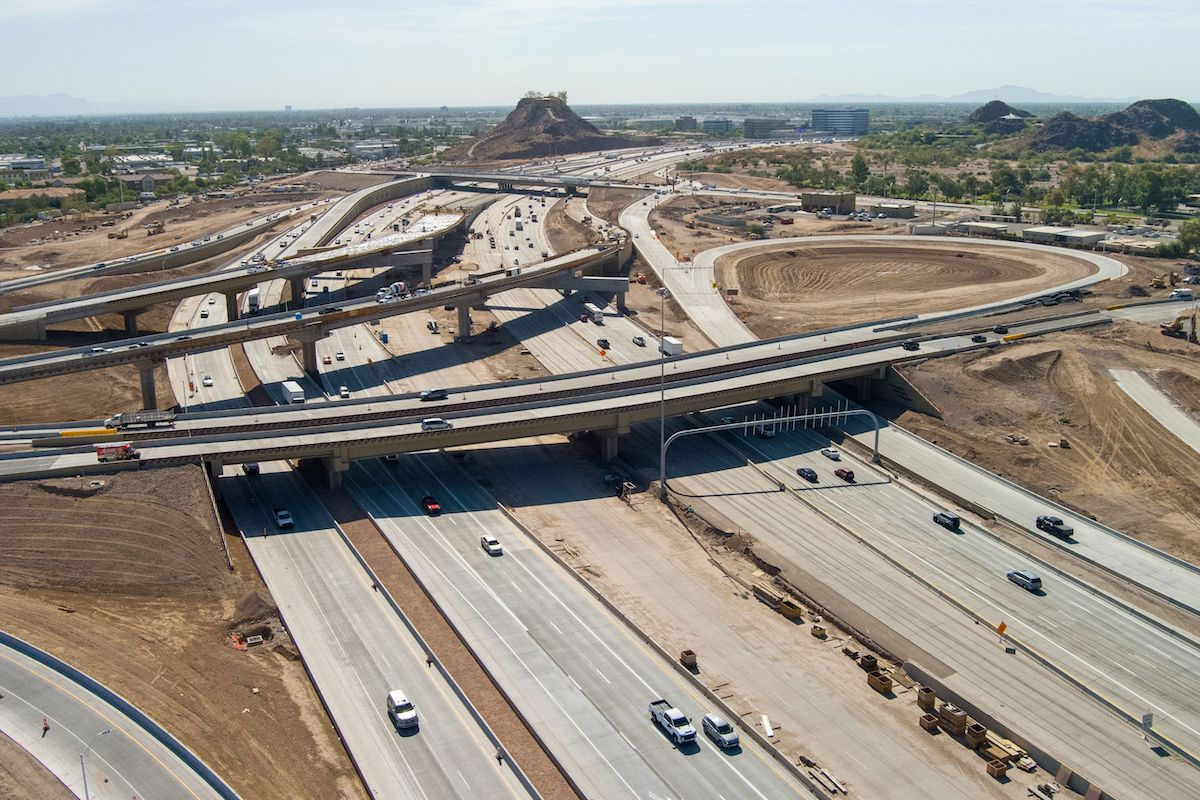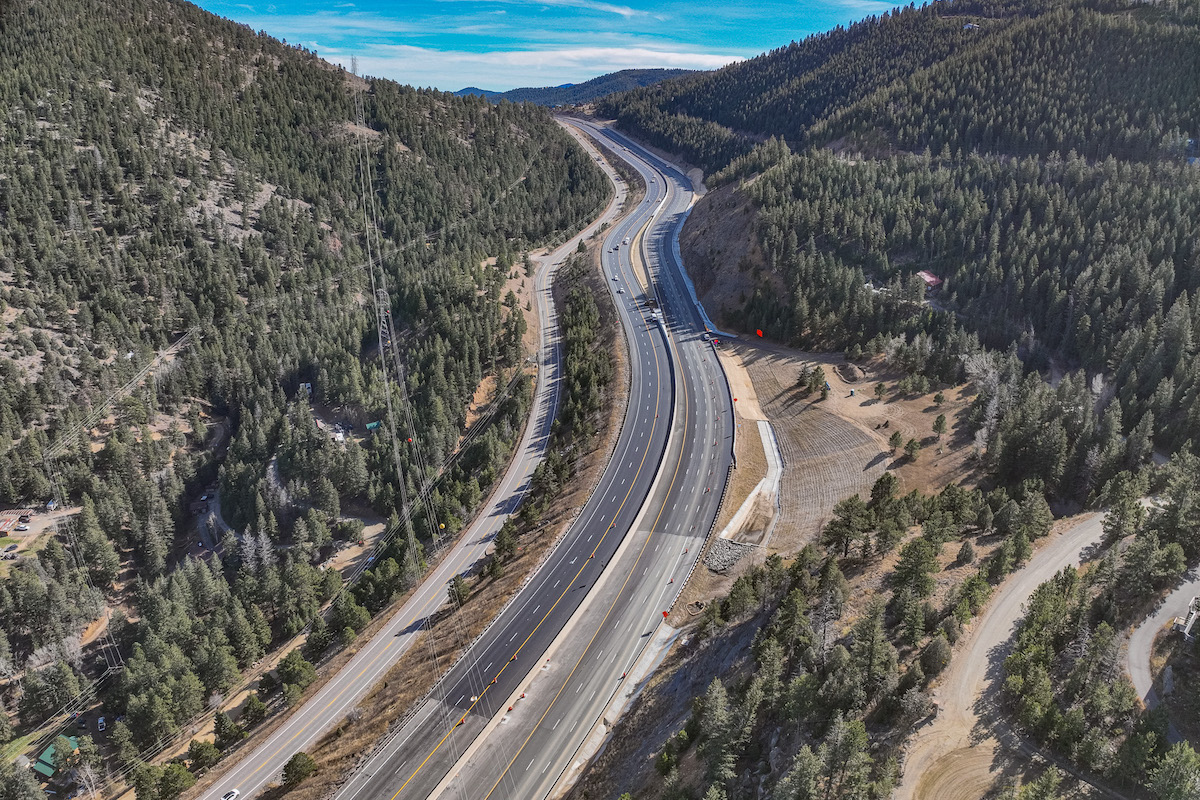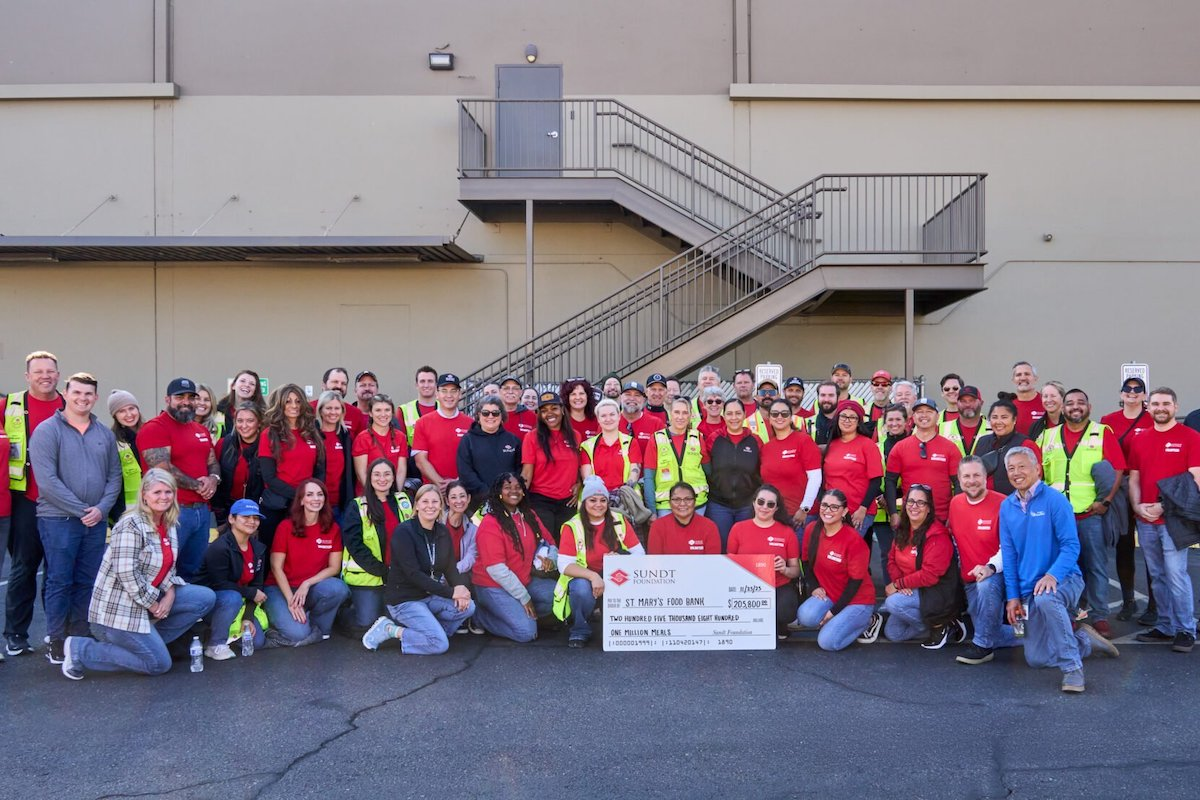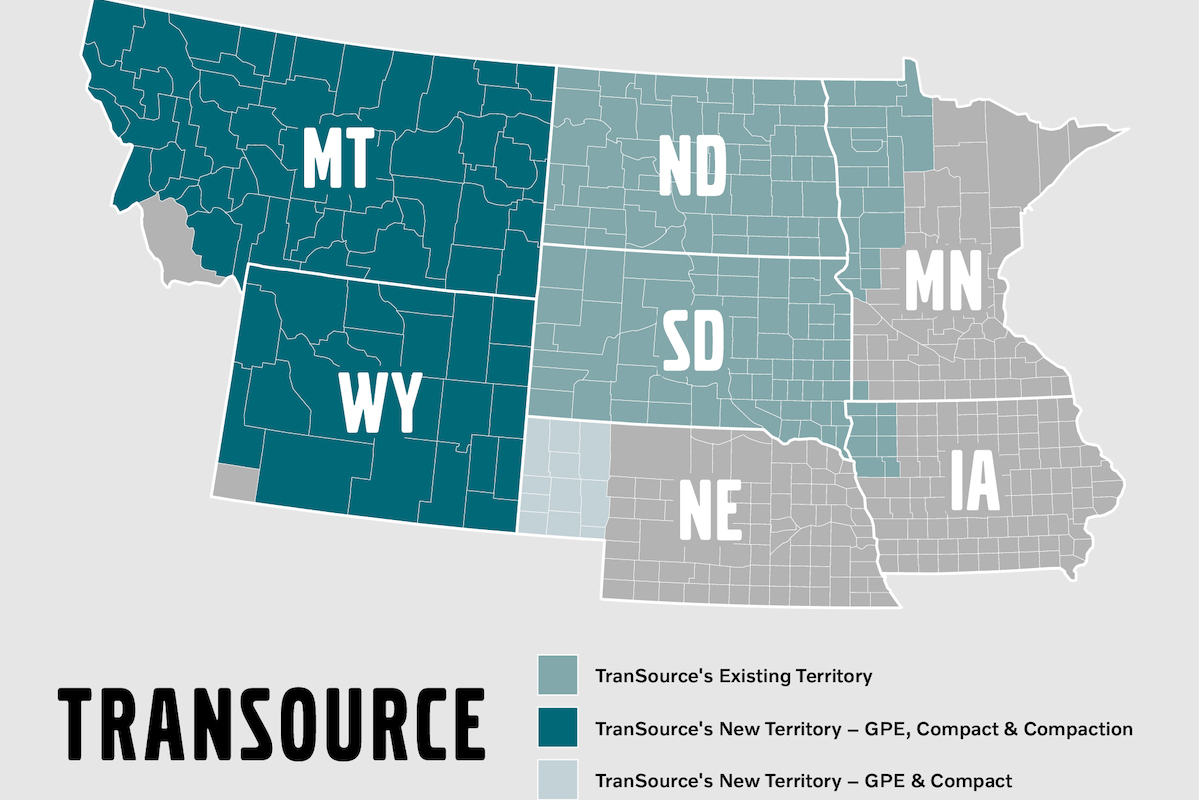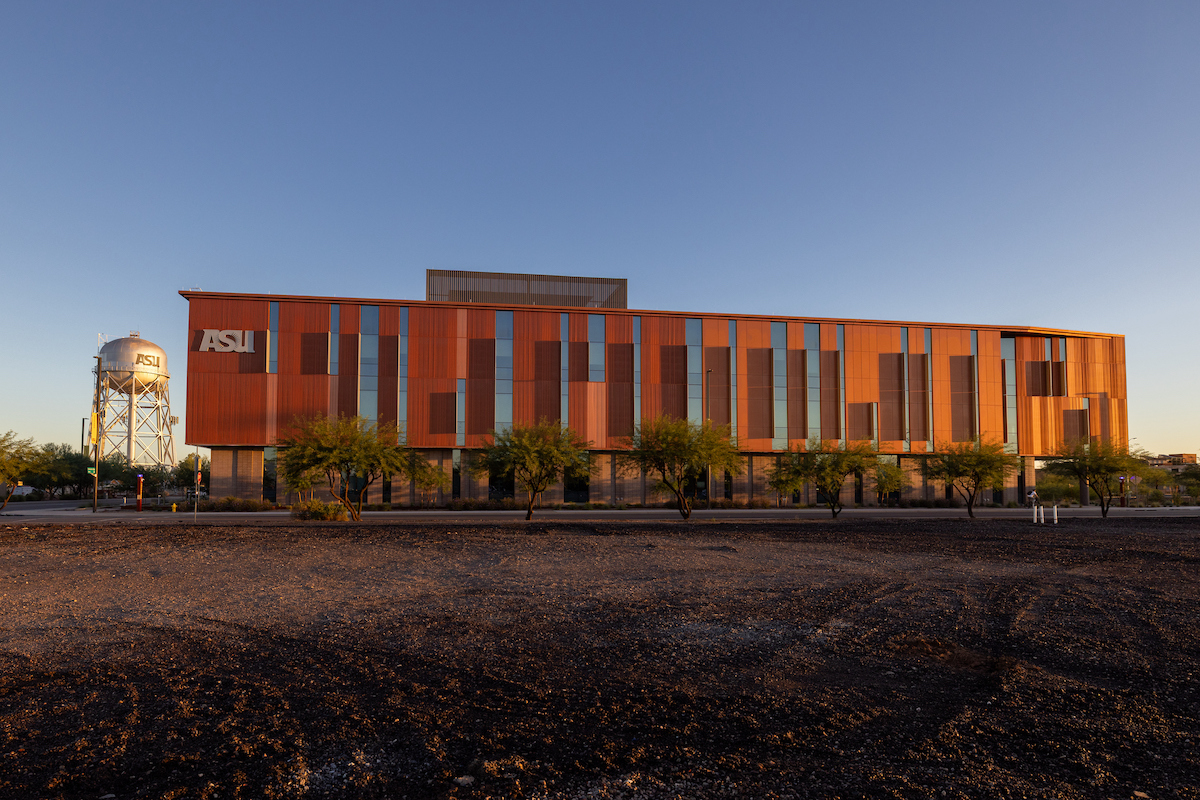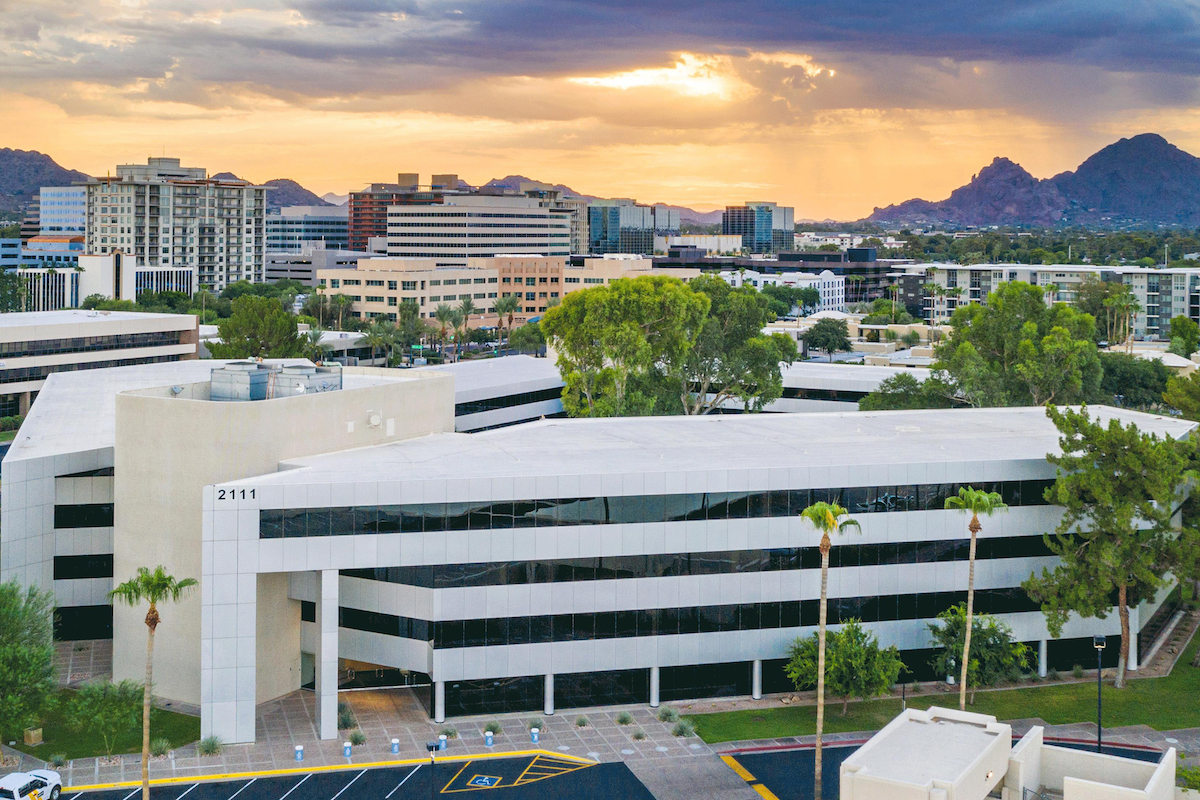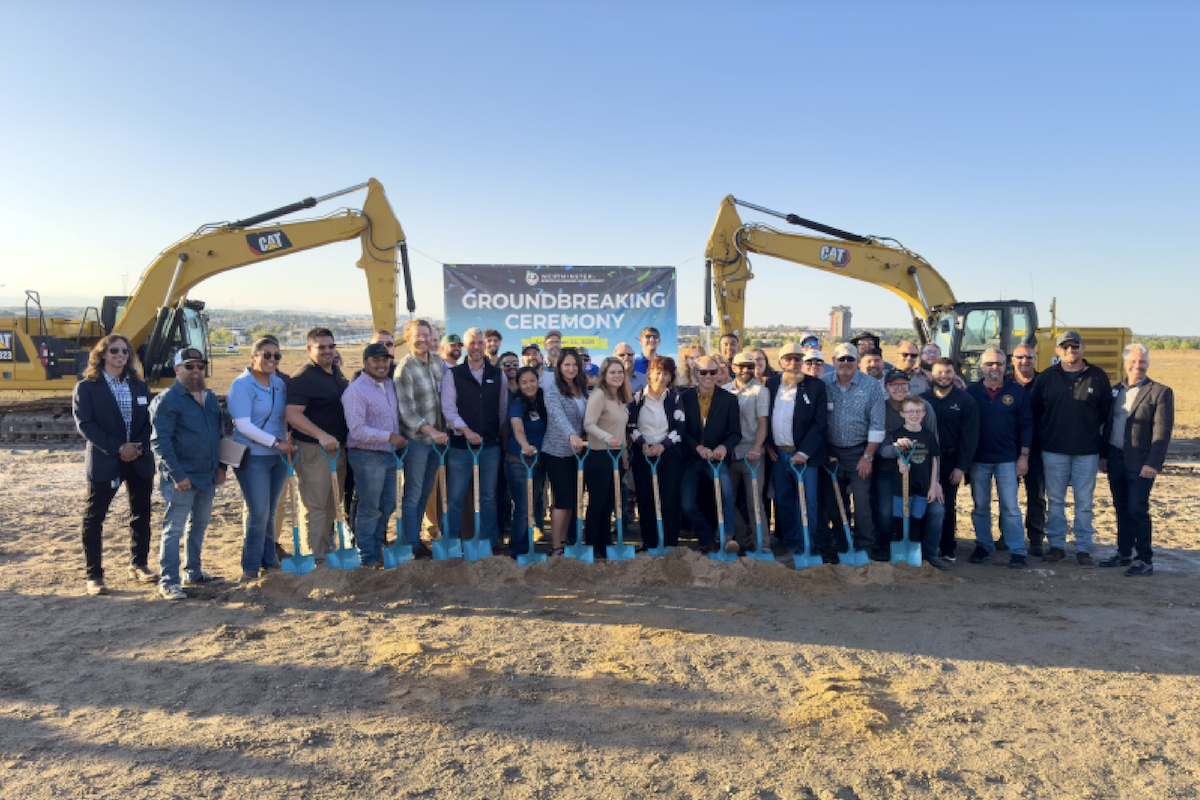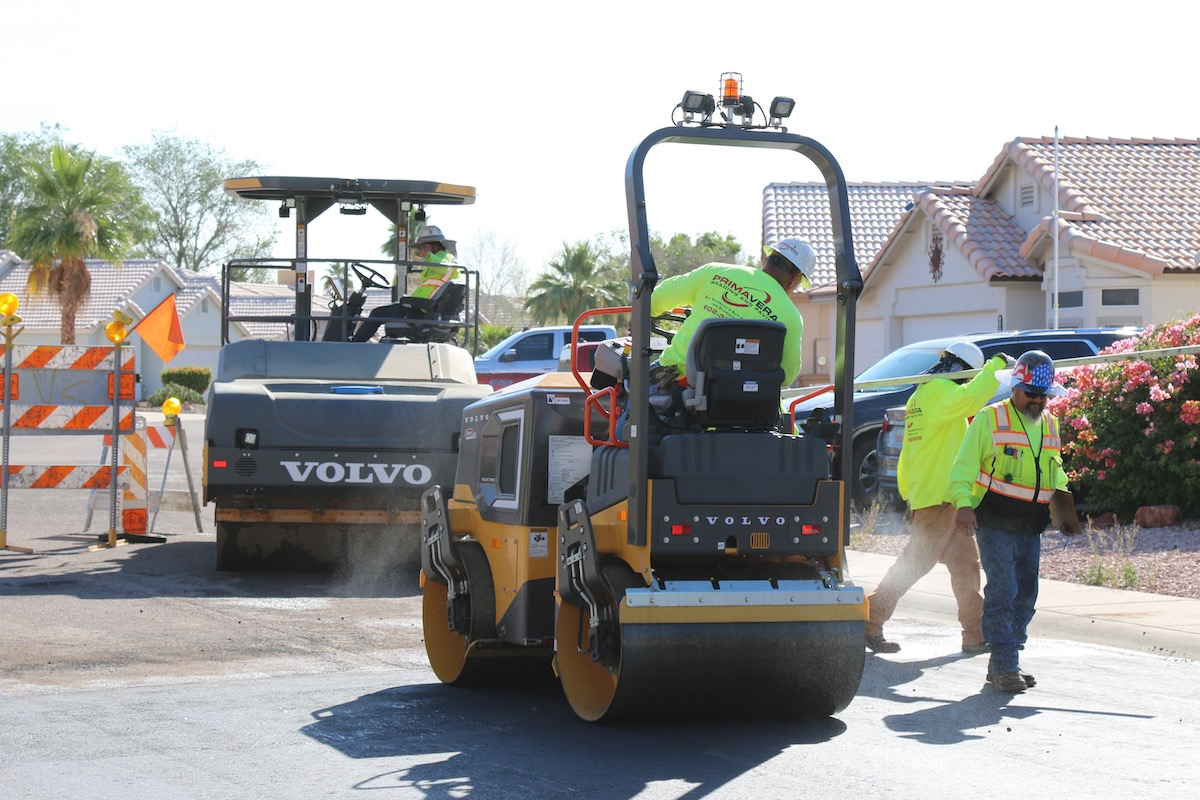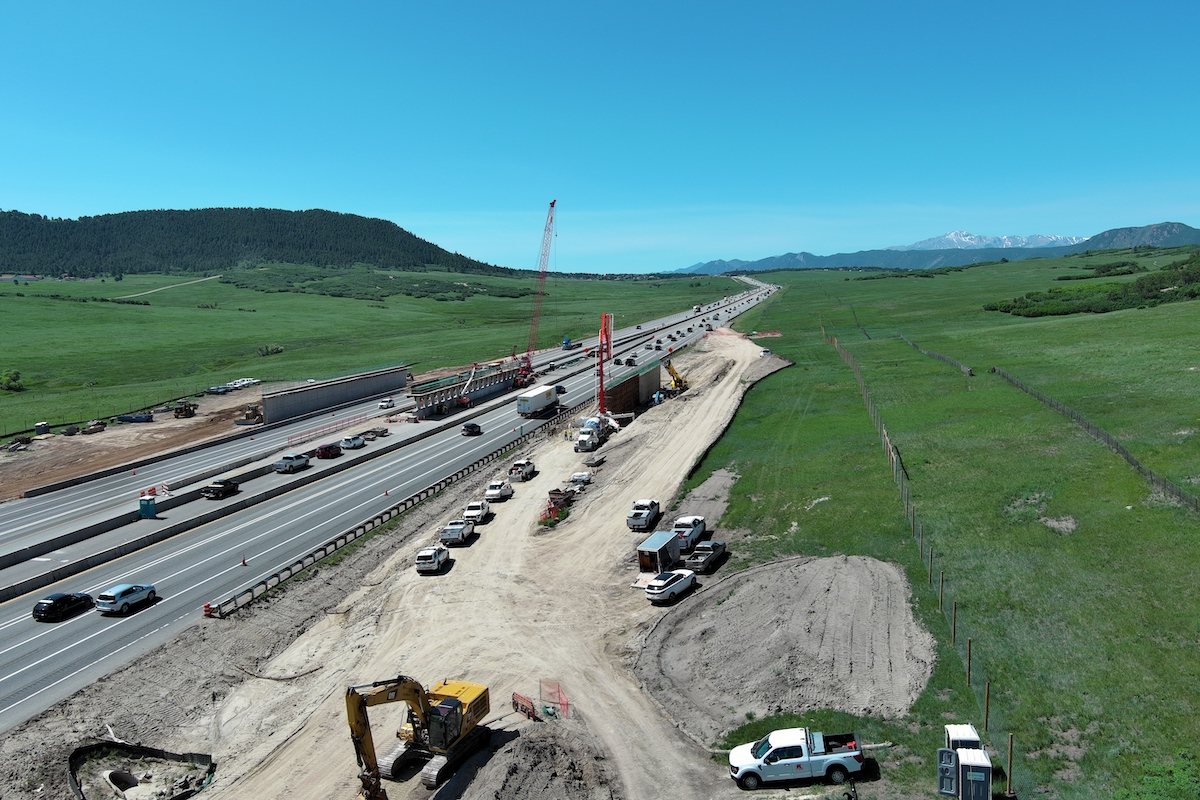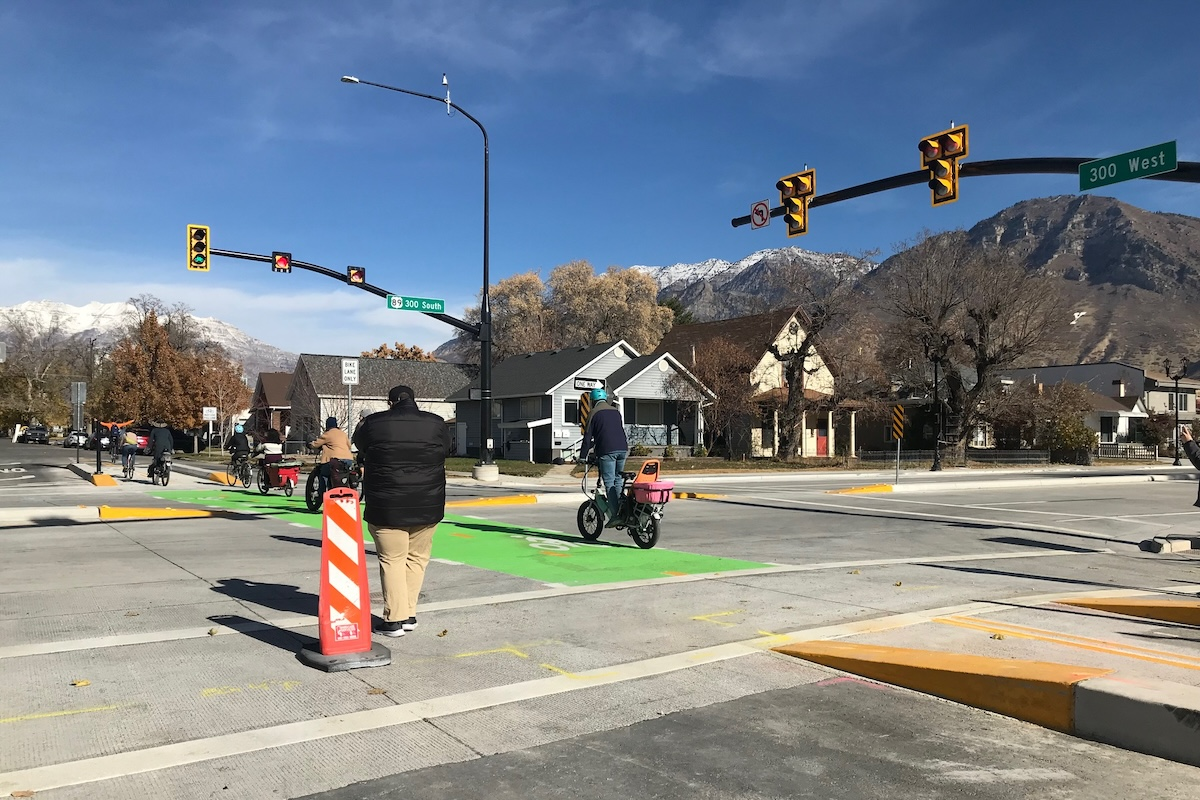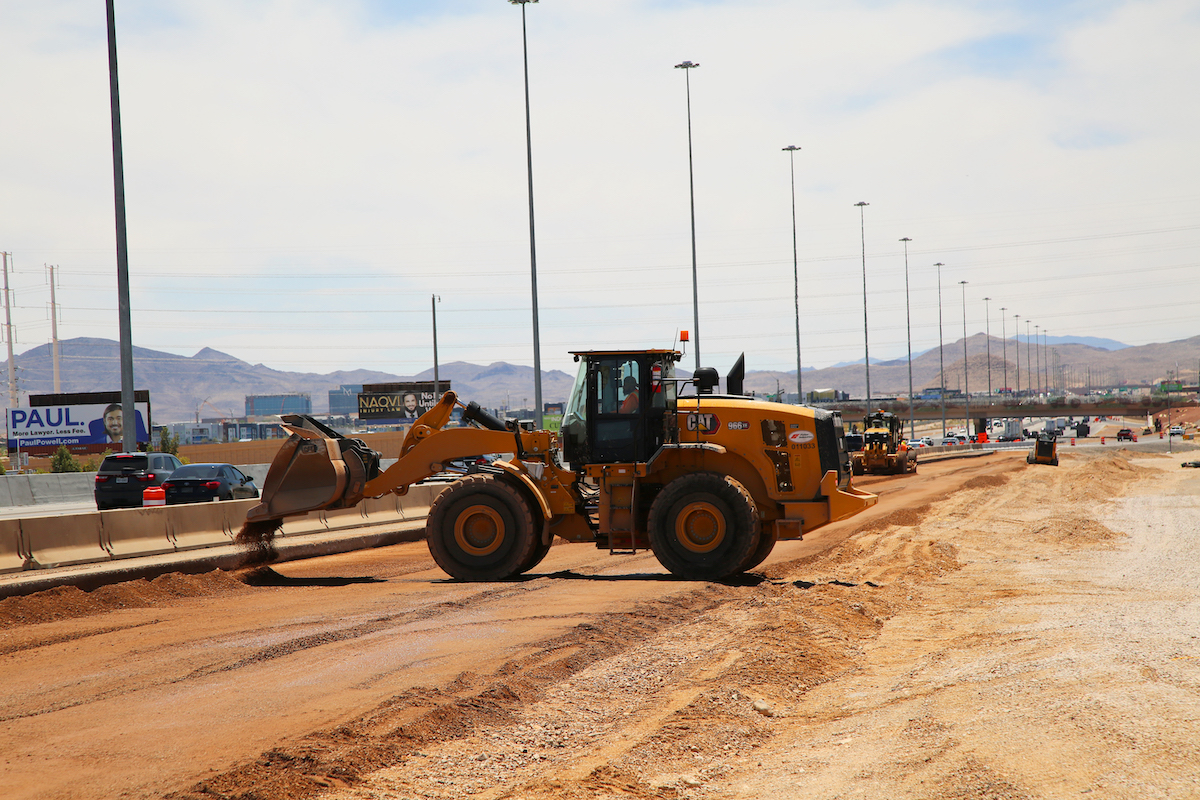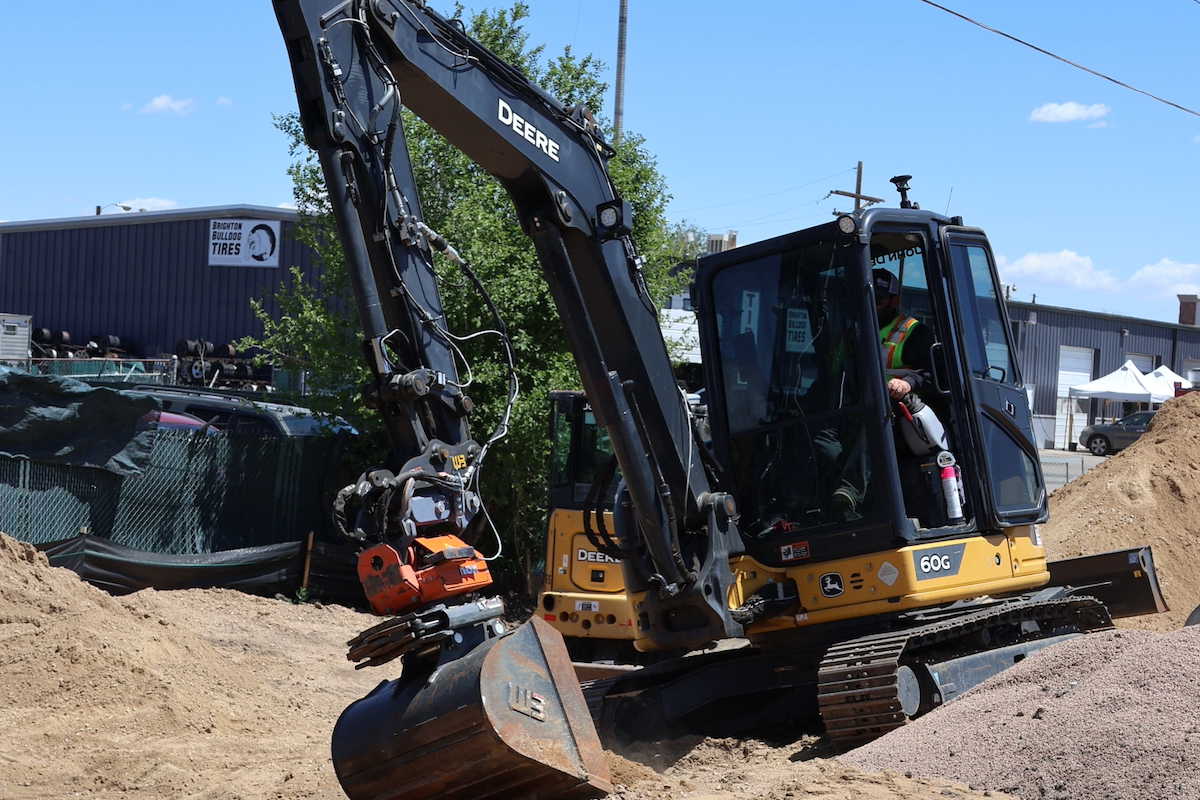The nearly 4-mile project area had an average daily traffic of 132,000 vehicles as of 2022. “The previous projects have left a bottleneck between Ina and Ruthrauff roads, where the highway narrows from four lanes to three lanes in each direction,” ADOT Public Information Officer Garin Groff said.
Groff added that I-10 is a significant route in the area, as it is the only interstate traversing this section of Tucson. “This project ensures I-10 will be equipped to accommodate passenger and commercial traffic that will flow through this part of southern Arizona for years to come,” he said.
Widening I-10 to four lanes with an additional auxiliary lane between on- and off-ramps should enhance traffic flow in the area.
Other major elements of the scope include the following:

| Your local Bobcat dealer |
|---|
| Ditch Witch West |
| Faris Machinery |
- Shoulder Pavement Replacement: The existing inside shoulder pavement on I-10, particularly near the Ina Road interchange, will be replaced to accommodate an additional lane in each direction. This upgrade increases roadway capacity and improves safety.
- Interchange Reconstruction and Vertical Clearance: The project includes reconstructing the traffic interchange at Orange Grove Road, which involves providing additional vertical clearance under I-10. This is essential for accommodating taller vehicles and reducing the risk of collisions.
- Bridge Reconstructions and New Structures: Bridges over the Cañada del Oro Wash and Rillito River along I-10 will be reconstructed to ensure sufficient clearance. Additionally, new bridges will be constructed to carry Sunset Road traffic over the Union Pacific Railroad and the Rillito River.
- Chuck Huckelberry Loop Access Path: An access path to the Chuck Huckelberry Loop from Sunset Road will be constructed, enhancing connectivity for pedestrians and cyclists.
“These preparations were crucial for maintaining traffic flow and ensuring the smooth progression of the project,” said Paul Preston, Project Manager at Granite Construction.
The second phase — which began in May 2023 and is expected to be completed by September 2024 — involves removing existing sections of I-10, including six bridges, and constructing the new I-10.
The demo subcontractor, Ground Level, used a Caterpillar 374 Excavator outfitted with a ball and chain attachment for the precise and efficient removal of concrete bridges. “The combination of the Cat 374 Excavator power and versatility with the specialized ball and chain attachment allowed for the controlled demolition of the bridges, demonstrating innovative solutions tailored to the specific requirements of the project,” Preston said.
Phase two also includes the installation of five three-span bridges, two single-span bridges, and MSE walls. “One of the key challenges of this phase is managing traffic flow while transitioning from the frontage roads to the newly constructed I-10, which was accomplished by reducing the width of the freeway during a later phase,” Preston said.
There are two components of phase three. Both involve moving a substantial volume of dirt, laying storm drains and catch basins, and paving base asphalt and concrete. During the fourth and final phase, the team will do the final cleanup and remove all detours on I-10. They will also remove the temporary infrastructure.
While the I-10 construction is occurring, there is another nearby segment. The scope involves significant earthwork, storm drain installation, and asphalt paving. Additionally, this segment involves the installation of bridges and wire face walls. Sunset Links is scheduled for completion by the end of 2025, aligning with the conclusion of the I-10 project.
“To address this challenge, we established regular meetings, check-ins, and reporting mechanisms to facilitate information exchange and decision-making,” Granite Project Manager Loren Lundry said. “Additionally, the project team has employed a project management system to streamline documentation.”
Another challenge is that the region experiences significant seasonal variations, particularly during monsoon season when dry riverbeds can transform into raging rivers quickly. Three of the six bridges on the project cross these waterways, necessitating permits from the U.S. Army Corps of Engineers. Despite proactive efforts by ADOT to obtain these permits in advance, a two-week delay occurred before the scheduled demolition of existing bridges began.
Loren noted how this highlights the importance of early coordination and permitting in infrastructure projects.
And then there were the bats. Tucson has a sizable bat population, with over 200,000 bats primarily residing in expansion joints under bridges. Due to environmental regulations and conservation efforts, construction activities on or under bridges where bats roost are restricted between April 1 and October 31.
“To address this constraint, we hired a wildlife biologist to inspect and clear all bridges before work commenced,” Preston said. The team also undertook measures to deter bats from returning to the construction site, such as closing off bridge abutments with pile wood and netting. These actions ensured compliance with environmental regulations while safeguarding bat habitats and minimizing project delays.
Another significant challenge was gaining access during phase two, as the job site is encircled by freeway traffic on all sides. “With the demolition of bridges dividing our site into thirds, maintaining efficient access became paramount,” Loren said. The team had three main entrances and exits, including the Orange Grove interchange and the north and south ends of the job.
Granite collaborated closely with ADOT and Pima County Flood Control to devise access control solutions. “We developed a crossing at the Cañada del Oro and Rillito washes, allowing us to regain a haul route throughout the length of the project,” Loren said. “This strategic partnership enabled us to overcome the challenges posed by limited access and ensure the uninterrupted flow of construction materials and equipment to and from the site.”
“Granite's project managers have come up with some innovative ways to phase the project to save time and also mitigate any schedule impacts with the least possible financial and schedule impacts to ADOT,” said Engineer Chris Page, formerly of ADOT.
Granite is also the local contractor for this project since their Arizona office is in Tucson. “As a local contractor, we understand the unique needs and challenges facing Tucsonans, and we are dedicated to ensuring that our projects benefit the community,” Granite Area Manager Anthony Alfonso said.
The $171 million project is on budget and included both federal and state funding.
When the project is completed, drivers on I-10 will enjoy better traffic flow and improved safety. This is due to the additional lanes and improved access at the two interchanges within the project boundaries. Construction of a new structure will allow traffic to flow over the Union Pacific Railroad and the Rillito River, which will open up a new way to access I-10 via River Road, a major local artery.
- Owner: Arizona Department of Transportation (ADOT)
- General Contractor: Granite Construction, Tucson, Arizona
- Project Designers: Kimley Horn (lead designer), with portions being designed by Psomas, Los Angeles, California, and Point Engineering, Phoenix, Arizona
- Quality Assurance: ADOT; Horrocks Engineering, Pleasant Grove, Utah; Psomas; and Consor Engineering, Houston, Texas
- Project Engineers: Chris Page and Michael Rigby
- Other Key Contractors: Ground Level Demo, Mesa, Arizona (demo); Alta Survey, Tucson, Arizona (survey); Michels Foundation, Tempe, Arizona (drilled shaft foundation and geo columns); PACE Electrical, Tucson, Arizona (electrical); Paradise Rebar, Phoenix, Arizona (rebar supplier and tier); RGG United, Glendale, Arizona (slip form barrier); Southwest Concrete Paving, El Mirage, Arizona (concrete paving); and Stinger Bridge & Iron, Coolidge, Arizona (concrete and steel girder)



















